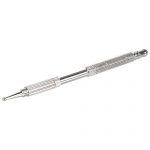Another strategy is to look at the company’s LinkedIn page or the company website and look for the hiring manager’s name. https://remotemode.net/ Try to get their direct contact by calling the company. Don’t follow up on your application for at least a week.
- “With all the applications that hiring managers might get, you certainly want to get your name in there and try to get it at the top of the pile.”
- If you land an interview, you prepare, give it your best shot, and then you wait for a response.
- Options like “Sincerely,” “Thank You,” and “Best Regards” tend to work well.
It may be tempting to reach out sooner, but waiting at least two weeks to follow up gives potential employers time to read and respond to your application. Although you may be eager to get your dream job, hiring managers typically need some time to receive and assess job applications before moving into the interview process. Companies and hiring managers balance many moving parts during the hiring process. In your email you can ask what the next steps in the hiring process are. When are you likely to hear and will whether all applicants be contacted, or just those who are being called in for interview?
When to follow up on a job application (and examples of how to do it)
But there are ways to let the employer know you are truly interested in the administrative job without coming across as desperate. But, Mozian offers a piece of advice that can help to take a lot of stress out of the process. “The candidate should always ask the interviewer—even during a screening interview—what the next steps are in the process,” she explains. If you’ve made it to the interview stage, congratulations! In the body, you’ll want to express your continued interest and confirm whether they’ve received your application.
Instead, focus on reiterating your interest in the role and requesting an update on the hiring process. Thank you for your time and consideration, and I’d be happy to schedule a brief call or meeting to discuss my application and answer any questions you may have. The general rule of thumb is to wait about one to two weeks after submitting your application before following up. For example, you might ask how long they expect the hiring process to take, request clarification on the job description, or ask the next steps. Follow up until the employer gives you a reason to stop. That means, if you have followed up several times and still have not heard back, it’s probably best to move on.
Follow-Up Email After Interview: The Complete 2023 Guide with Examples
If you’ve applied for a job and haven’t heard back after two weeks, it’s OK to send a professional follow-up email inquiring about the status of your application. Use this sample email message as a guide to draft your own job application follow-up email. You check job postings and wait for new opportunities that match your skills and interests. You put together a cover letter and a résumé, send them off, and wait to hear about a possible interview. If you land an interview, you prepare, give it your best shot, and then you wait for a response.
I would be happy to connect with you over a brief call or video chat to discuss my qualifications and learn more about the company and the role. I wanted to follow up on my recent application for the [Job Title] role at [Company Name]. I remain excited about the opportunity to join your team, and I’m eager to learn more about the hiring process. I wanted to inquire if there has been any update on the hiring process since I submitted my application on [Date]. I would be grateful for any information you could provide about the status of my application. Following up on a job application is a great way to demonstrate your interest in a position and potentially increase your chances of getting hired.
Figure out who the hiring manager is.
This depends on whether you’ve applied blindly or were referred to this position by somebody in your network. So, I chatted with two experts to get the lowdown on how long you should wait to follow up—wherever you are in the job search process. If you don’t get the job, it will certainly be disappointing. Here’s a master list of the best resume tips out there, plus a bonus to make your life easier.
It also doesn’t hurt to try to create a sense of urgency with the hiring manager. If you are interviewing for other administrative jobs or are lucky enough to have a job offer in hand already, let the employer know. Your goal isn’t to give the hiring manager an ultimatum but to stress your interest in the position they’re hiring for and to encourage them to call you in for an interview quickly.
More relevant reading
Remember to attach your resume to encourage the hiring manager to review your skills and qualifications once more. Before contacting a hiring manager, it’s wise to double-check that you’ve followed all steps listed in the job posting and submit anything you might be missing. This is an opportunity to show them how well you pay attention to detail and help the hiring process go smoothly. Like it or not, recruiters and hiring managers are busy people. Yes, filling the open role that you’re interested in is somewhere on their to-do lists—but, so are many other, far more time-pressing things.



